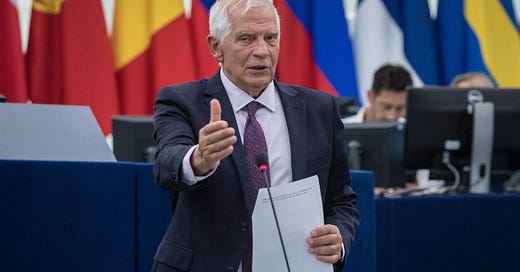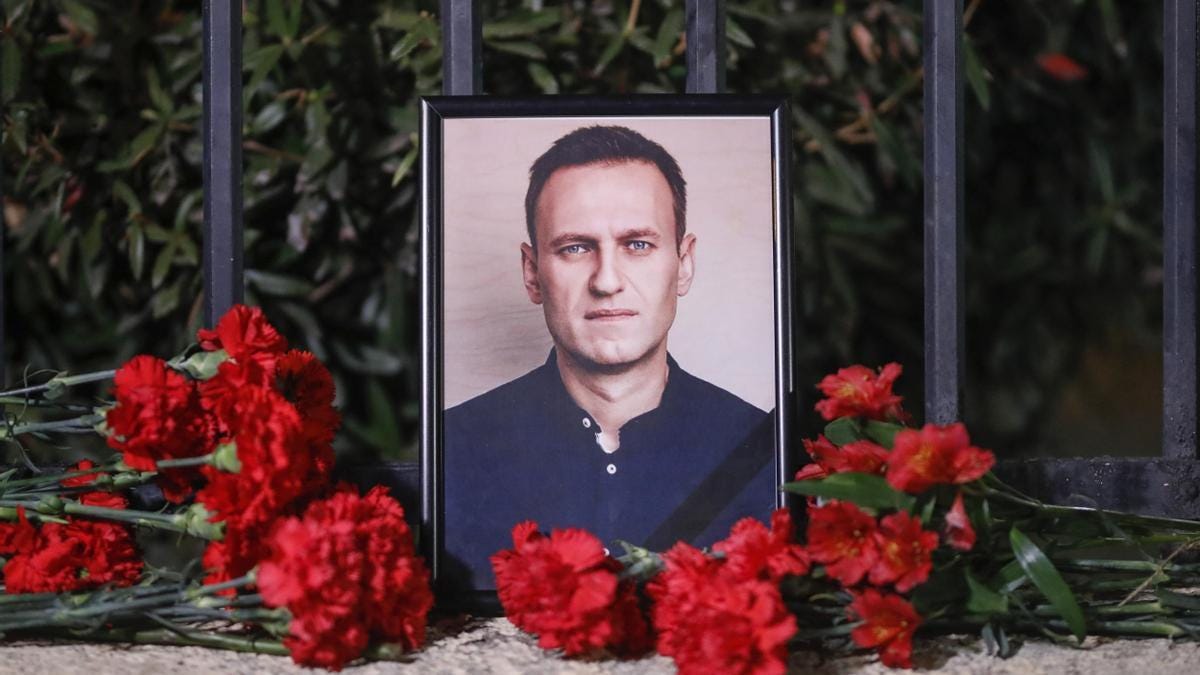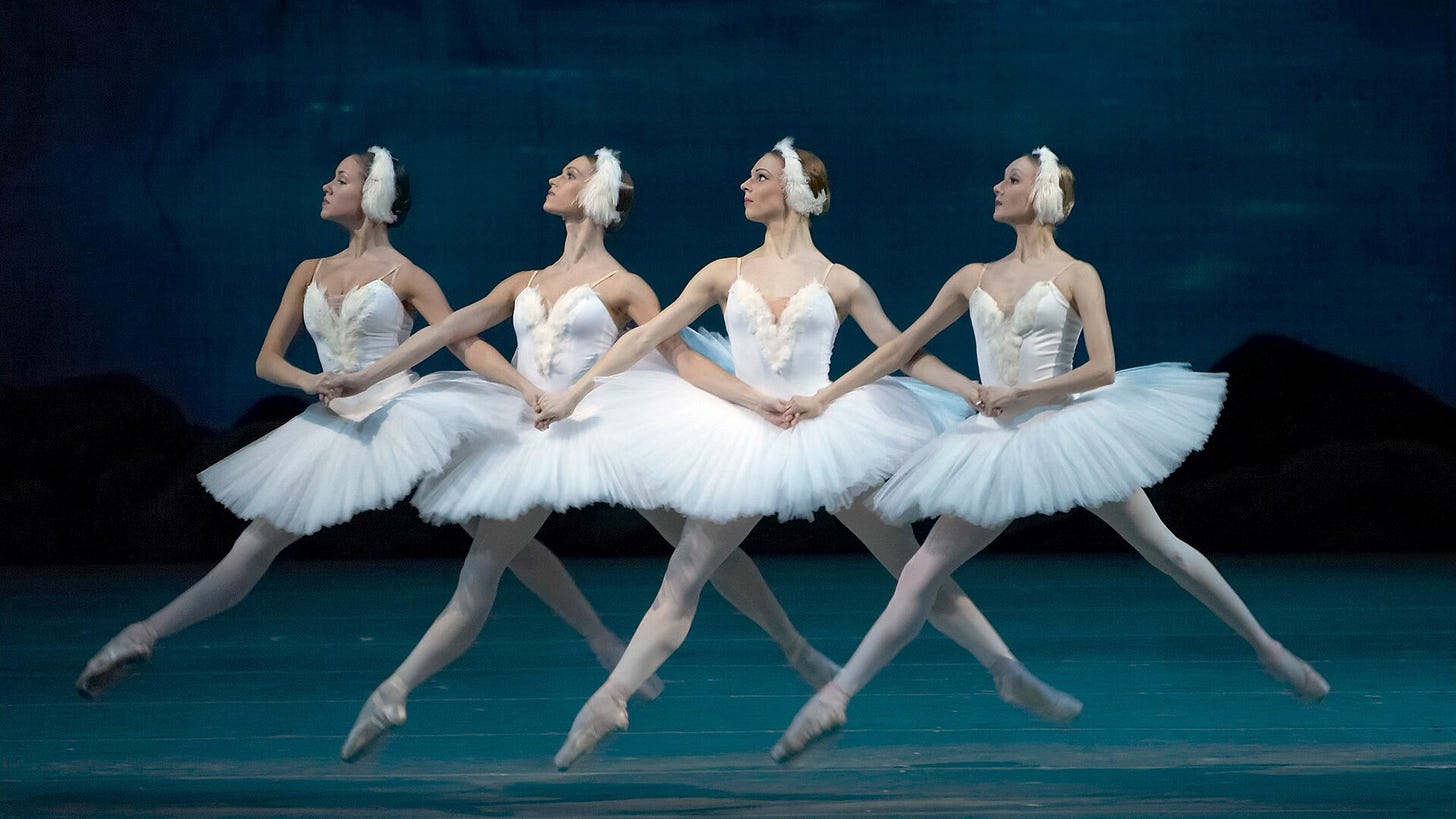Letter to Josep Borrell about a MEGA Europe (*)
(*) MEGA: DRAE: Very large or extraordinary. (*) Made Europe Great Again
As part of our plan to encourage the wise and the social leaders to see the universal ethical principle and to embrace and apply it, I believe it's a good time to write a letter to Josep Borrell. With the hope that the two basic laws of survival and altruism serve to launch an old idea that makes Europe bigger and stronger , and thus more capable of contributing to building a better world.
Brief resume of Josep Borrell
Josep Borrell is a little younger than me, born on April 24, 1947, and is a very well-rounded man as he is an aeronautical engineer, PhD in economics, professor of business mathematics at the Complutense University, and he worked one summer in a kibbutz in Israel and seven years at CEPSA.
But above all, he is a politician who, among other positions, has been Secretary of State for the Treasury from 1984 to 1991 with the socialist government of Felipe González, Minister of Public Works in 1991, and in 2002 he participated in the drafting of the European Constitution. From 2004 to 2007, he was President of the European Parliament. Minister of Foreign Affairs in 2018. From 2019 to 2024, he was the High Representative of the European Union for Foreign Affairs. He has numerous Spanish and international awards. In 2025, he was named an honorary doctor by the University of Comillas. He is currently President of CIDOB , the Center for International Affairs , the oldest and more influential Catalan think tank in Spain
Text of the letter sent to Professor Borrell on 22.4.2025Dear Professor Borrell,
Congratulations on your 78th birthday. I'm writing to you because I think you're a wise man capable of understanding my ideas. We both belong to the same generation and we are both "guilty" of helping make it possible for the world to go from the 2 billion inhabitants of the 1940s, when we were both born, to the more than 8 billion today who are putting the survival of humanity at risk.
I enclose my Report on human life: Laws, ethics, and the future hopping that you will find it interesting where I develop the two biological laws and the universal ethical principle that, if right, can help us see and manage the many problems of our bewildered humanity. You can find a video summary, a blog, and more books and documents on my website
I would like to ask you two things:
1ª. That you, either personally or in collaboration with CIDOB or other people in your circle, review my main ideas and their applications and, if you wish, tell me your opinion on whether you find them plausible and useful. I am enclosing two other copies of my book, which can also be downloaded from the aforementioned website.
2ª. I think that, given the current American administration's policy, it's a good time to to implement an old idea that would solve many problems. It involves initiating a process for Russia's integration into Europe: one way or another and within a period of five to ten years. And it seems to me that you, or someone capable and close to you, could suggest the idea to leaders in Europe and Russia. At the appropriate and feasible levels. I don't need to tell you the advantages of this possible union. They're well known. I'm writing an article that I hope to post on my blog in early May, with a copy of this letter and a note on some ideas on the subject that I attach.
I don't want to go on any longer now. If you're interested in my suggestions, I'm at your disposal at the addresses listed below.
Thanking you in advance for your attention, please accept my cordial greetings.
Note attached to the letterRussia in Europe: Some Ideas
I will briefly outline some ideas regarding Russia's possible integration into the European Union.
a) Positive factors
Geographically, Russia is Europe up to the Urals, where most Russians live. It's the largest country in the world , but from the Urals eastward, all of Siberia is just a huge appendage of the main European body.
Historically, Russia has been and remains an active part of Europe. It has participated in European life, the arts, friendly relations, and wars like any other European country.
Genetically, Russians are mostly Slavic, which is the largest ethnic group in Europe.
Their religion is predominantly Christian, Orthodox, with a common root with the rest of Europe.
Their morals, customs, and habits are typically European. Young people tend to be increasingly "Westernized."
Both the Russian leaders and the people feel European, and I'm sure that under normal circumstances, the vast majority of Russians would vote for integration with the rest of Europe. And the rest of Europe would be delighted with Russia's integration for all its advantages. It would be easy to create a positive atmosphere on both sides with current social engineering techniques.
Russia contains enormous wealth in oil, gas, minerals, forests, and so on. And for Russians, integration with the rest of Europe would mean becoming what they already are, but cannot do now.
Russia's integration into Europe would bring peace to the European continent, ending hot and cold wars and sparing grave human suffering. It would also bring enormous economic advantages, zero expenditure on weapons, and a significant capacity for material and moral development.
Integration would also mean complete or near-complete self-sufficiency for the resulting Europe. And a huge economic and geopolitical power. It would be one of the three world leaders. It could act as an interlocutor to the east with China and Asia and to the west with the two Americas: with the north facilitated by family ties with England and France, and with the south by those of Spain and Portugal.
The fear of invasion would be eliminated in neighboring countries: Poland, the Baltic States, Scandinavia, and the southern countries. In a Europe of confederated states, Russia could be represented by its eight federal districts.
With the incorporation of Russia or its eight federal districts into the 28 states of the European Union, another twenty European states would be left outside the Union , but all of them could be incorporated gradually. Or they could continue with the agreements deemed most appropriate in each case and at each moment. The incorporation of Russia and its districts could also be carried out in the manner and time best suited to the circumstances.
b) Possible problems
Autocracy and the current Russian government.
The conflict with Ukraine.
Possible opposition from the USA and China.
The normal resistance to change in any society.
General considerations
It is essential to bear in mind that the idea of Europe as a unit of coexistence is conceived within the framework of building a better world. With the common goal, implicit in our nature, of ensuring the survival of humanity. And with altruism/love as the means, seeking the greatest possible well-being for all human beings existing at any given time. (1)
These goals would be furthered by the existence of a global Ethics Authority and Council, typically within the UN, that would manage the most appropriate policies to try to achieve the desired better world.
Russia's integration into the European Union would defuse one of the sources of ongoing conflict, posing a risk of more serious problems.
Given its history and capacity, a MEGA Europe would be the spearhead for the adoption and dissemination of a common human ethic, based on the two biological laws that frame the main philosophical doctrines and the "earthly" precepts and commandments of the great religions.
In accordance with the above, Russia's integration into the European Union is proposed with a double purpose:
1. Achieving “local” benefits for Europeans, including Russians, and
2. Promote global reconversion towards a better world. (1)
Things to do
It is quite possible that, under the current circumstances and with the current Russian government, this idea may seem far-fetched, but I remember the terrible relations between the French and Germans in 1945, and yet they jointly created the Council of Europe, the seed of the European Union, in 1951.
The current Russian government will not last forever, and we cannot rule out the possibility of a peace agreement in the current conflict that would lead to more normal relations, something that might be conceivable in the near future.
In any case, I believe that simply stating the idea in a forum where it could be heard by those affected would be an influential factor in the current situation, both in the discussions about the war in Ukraine and in the mood of European, Western, and Russian leaders and peoples.
10-Year Backcasting (An Elementary Scheme)
2025. Dissemination of the idea through think tanks, politicians, leaders, wise men and media.
2025/2026. Study at the European Parliament. One option would be to revitalize the Parliamentary Committee on Russia-EU Cooperation, which has been suspended since 2014.
2026. Present the idea to Russia and design a possible integration plan that does not exclude special transitional measures.
2027/2035. Start of integration and adaptations according to the plan and its evolution.
(1) See March and April Blog Posts
Some personal impressions of Russia
1. Navalny
I would like to dedicate this article to the Russian dissident Alexei Navalny (1976-2024), an independent candidate for the presidential elections in Russia, who died at the age of 48 in a high-security prison on February 16, 2024, and who said before one of the courts that sentenced him:
“I believe that no one has the right to remain neutral, none of us has the right to withdraw from the attempt to make the world a better place.” See the book I'm Not Afraid. Don't You Be . Ed Encuentro, Madrid, 2024.
2. A personal experience
Returning from a business trip to Tokyo in 1991, due to some problem with the Chinese, we had to fly over the Kamchatka Peninsula to return over Russian territory. It was a twelve-hour flight, and only three hours of time because we were flying with the rising sun. When we landed in Moscow to refuel, I felt as if I were already home.
3. Story of a gunner
These are memories from my uncle Perico, a veteran artillery brigade soldier from our Civil War. He told me about when he was in Russia with the first contingent of the Blue Division. They didn't have to see battle during their several months in Russia. He described their relationship with the Germans as one of mutual distrust, cold and distant, while they lived like family with the inhabitants of the villages where they were quartered: they helped cultivate the land, socialized with the elderly and children, sang, drank, and courted young Russian women, abiding by the Catholic and Orthodox morals of both sides. He returned as if he had been on a farming campaign in his village in Burgos.
4. Culture and Art
European culture has made important contributions through Russian art. I echo the comment of a good friend who, when thinking about Russia, says that Europe cannot be understood without the music of Swan Lake, or Rachmaninoff's Concerto No. 2, or without Anna Karenina, Uncle Vaina, or Dr. Zivago . Characters she recognizes as being as familiar as those of Galdós or Zola.






